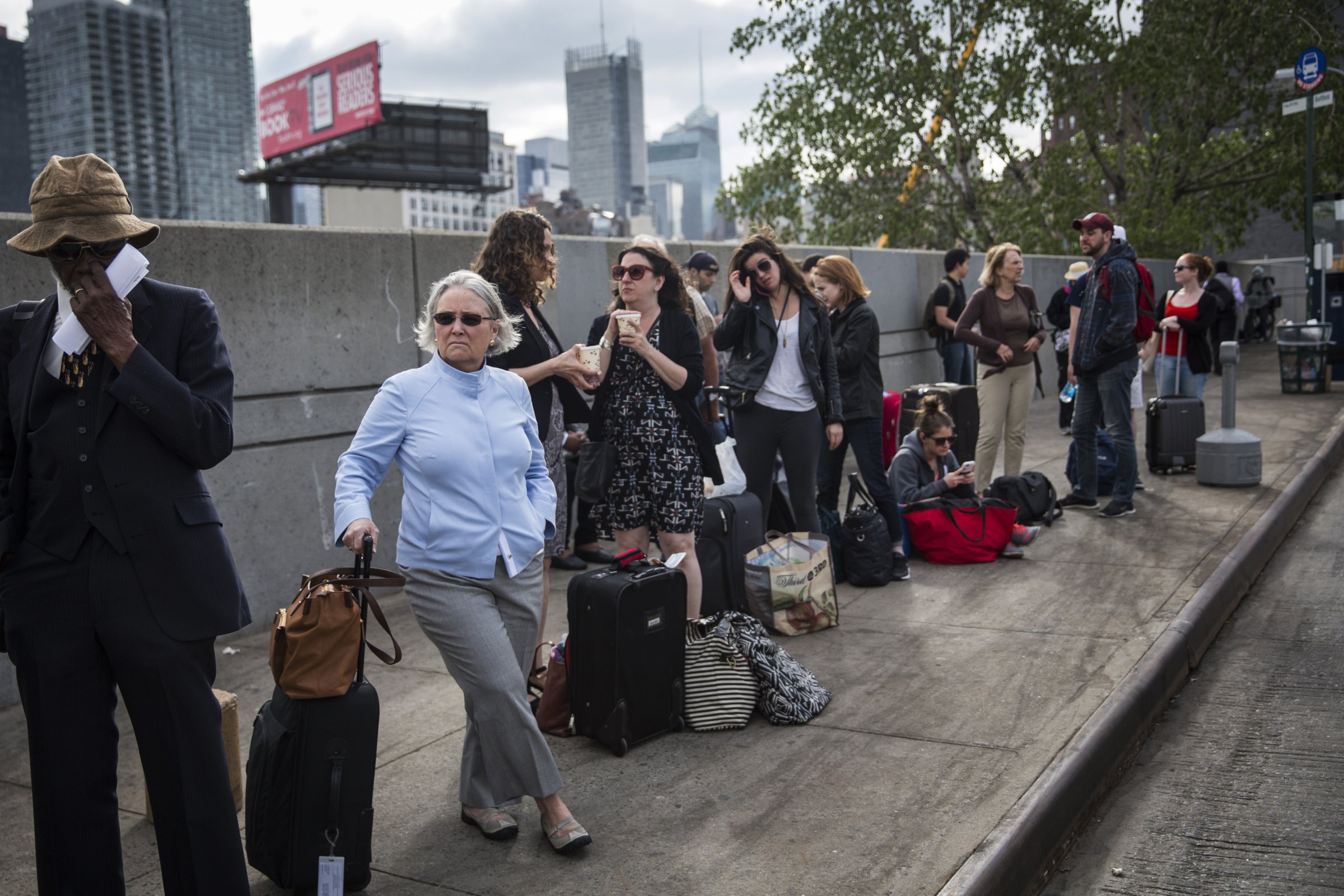
Stephen Mullin, president of a Philadelphia consulting firm, arrived at Boston’s South Station on Wednesday morning for what should have been a typical five-and-a-half hour trip home in the comfort of an Amtrak train. Instead, following Tuesday night’s deadly derailment of a train, Mullin became one of thousands of passengers jumping through hoops to complete what is usually an easy trip. His journey would last more than 9 hours and require travel on three different rail providers, Mullin said Wednesday.
“This is a pretty big hiccup,” said Mullin, who served as Philadelphia’s director of commerce during the 1990s, of the crash’s impact on railroad service across the Northeast Corridor, the stretch of rail between Washington, D.C., and Boston that Amtrak says serves more than 2,200 trains each day. The accident, which left at least seven people dead and more than 200 others injured, happened “right smack dab in the middle of the heaviest use of train commuting in the country.”
All those lost commuter hours come with a hefty price tag. Every day the rail corridor remains closed will cost the U.S. economy nearly $100 million in lost productivity and other related expenses, according to data in a 2014 report from the Northeast Corridor Infrastructure and Operations Advisory Commission.
The region is home to 45 million people and, with hubs of finance, media, education and government, has an economic output greater than France and just behind Germany. Every day, 750,000 people travel some stretch of the 400-mile route on Amtrak and eight commuter railroads, and more than half of the people traveling between metropolitan areas within the Northeast corridor use Amtrak.
While Tuesday’s crash did not close the entire pathway, it has left Amtrak’s busiest stretch between Philadelphia and New York City out of service for the foreseeable future. Philadelphia Mayor Michael Nutter said “there is no circumstance under which there would be any Amtrak service this week through Philadelphia.”
As of Wednesday night, all but two of the train’s cars had been removed. Amtrak said in a statement that it would not operate between the two cities on Thursday, but that New Jersey Transit would honor Amtrak tickets between Trenton and New York City. But it’s not just commuters who will be affected; the tracks are also shared by four freight railroads and play a vital role connecting East Coast ports with industrial centers in the Midwest.
Amtrak did not reply to an inquiry about when full service may be restored. Robert Sumwalt, a member of the National Transportation Safety Board, said in a news conference Wednesday that investigators could be at the crash site for about a week.
But while the crash will certainly have an impact on the economy, its significance should fade shortly, Mullin said, adding that most business can be put on hold if necessary and passengers can hop on a plane or drive if they really need to get somewhere quickly.
“If there was something that shut down like transatlantic flights where the only alternative is taking a boat,” he added, “there would be a bigger impact, but here there are alternatives.”
More Must-Reads from TIME
- Cybersecurity Experts Are Sounding the Alarm on DOGE
- Meet the 2025 Women of the Year
- The Harsh Truth About Disability Inclusion
- Why Do More Young Adults Have Cancer?
- Colman Domingo Leads With Radical Love
- How to Get Better at Doing Things Alone
- Michelle Zauner Stares Down the Darkness
Write to Justin Worland at justin.worland@time.com